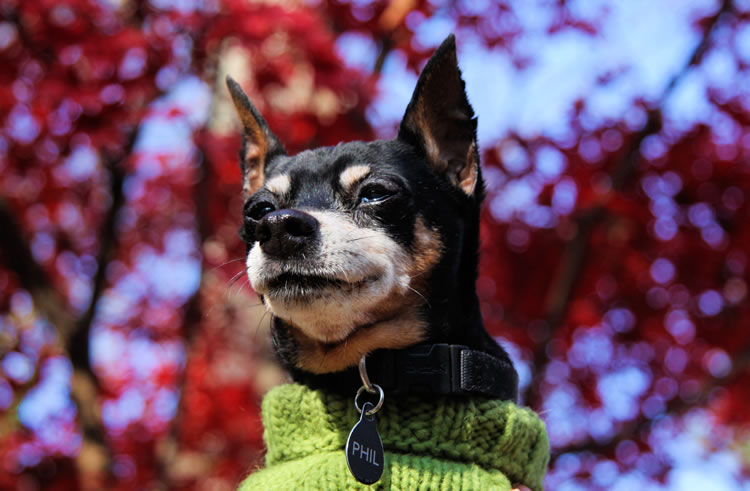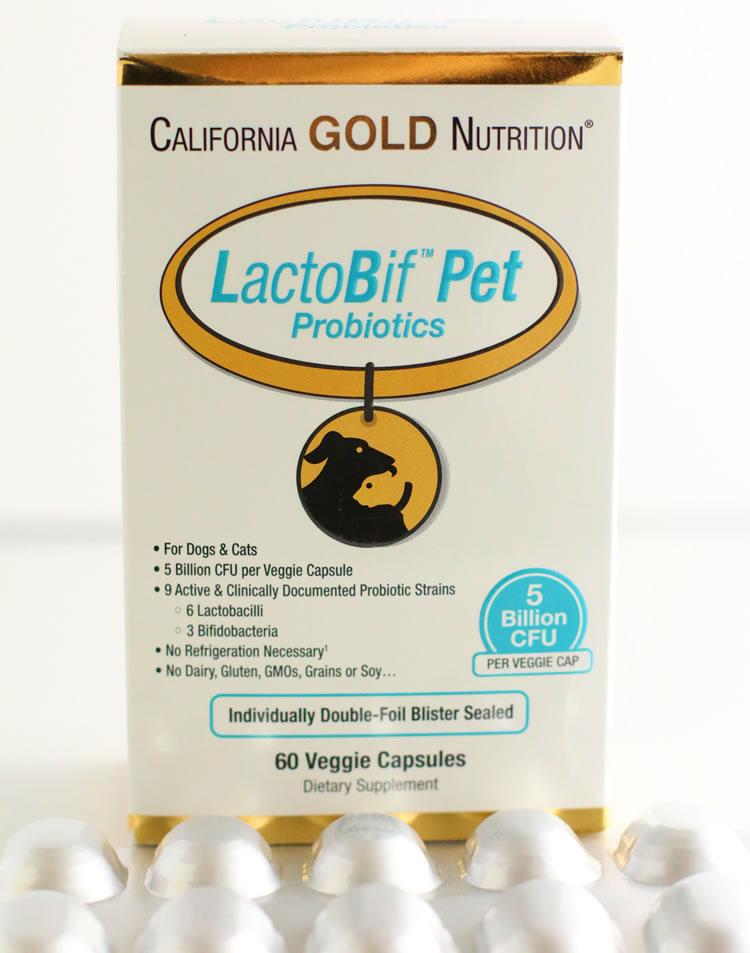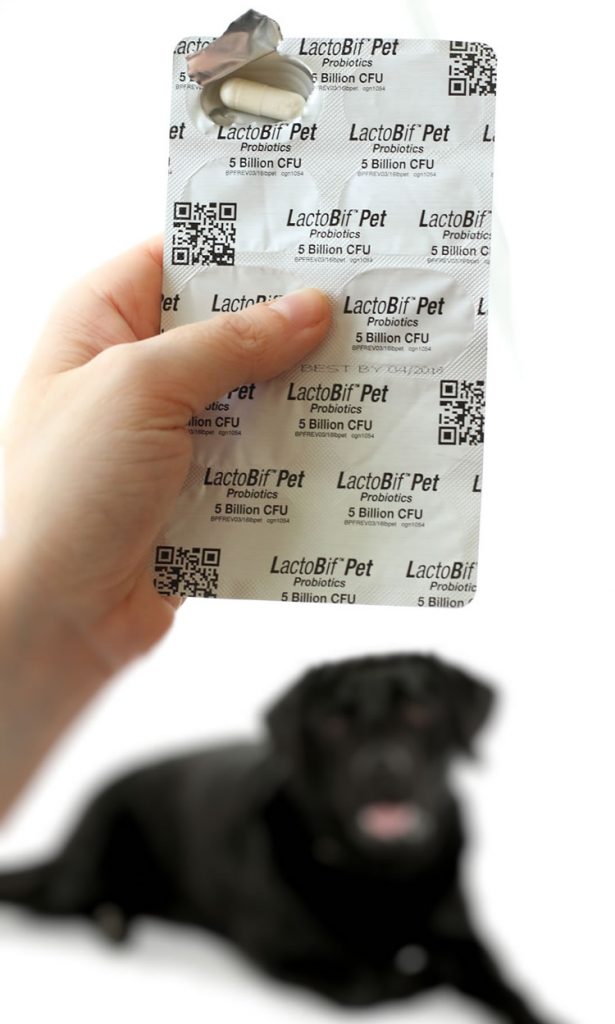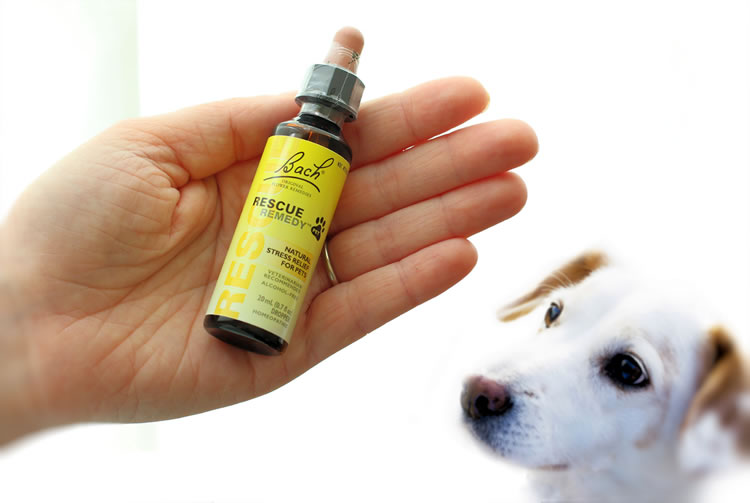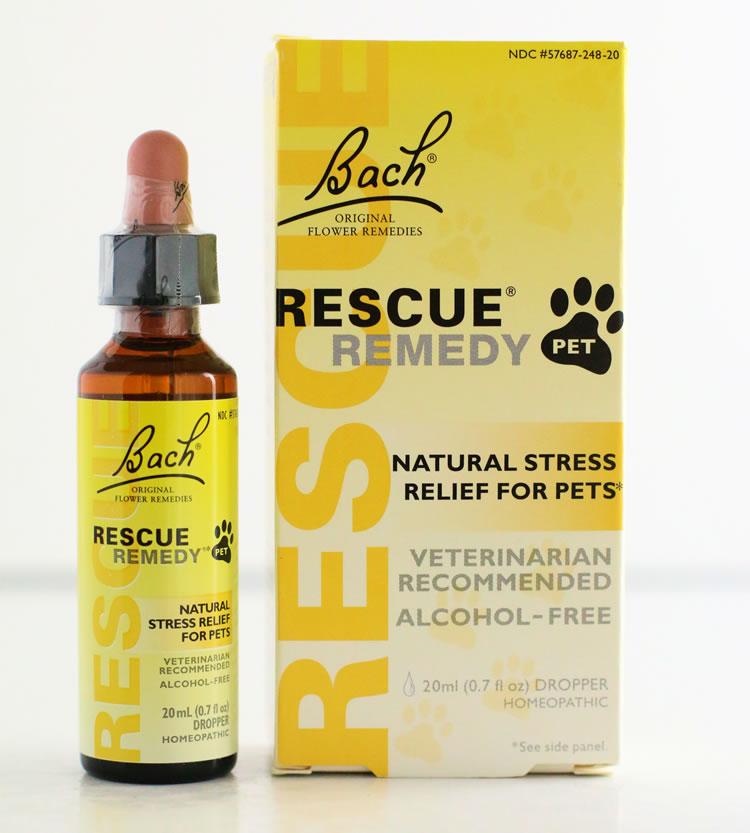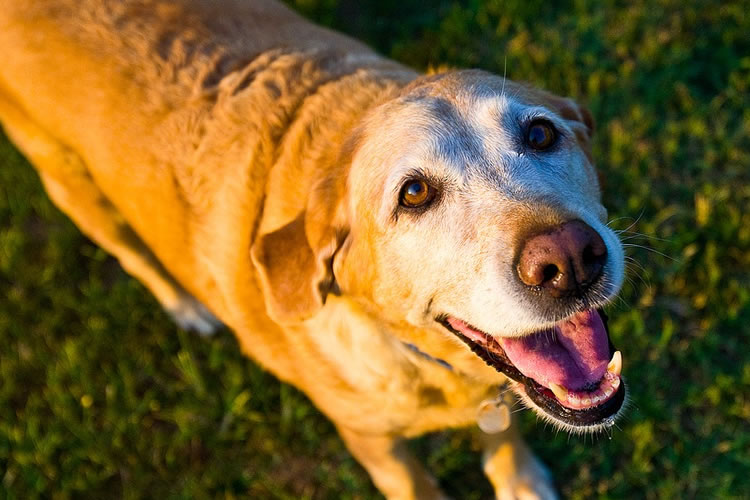
Just like older humans, older dogs not only begin to lose some of their energy and youthful spunk as they age, but they also are at risk for developing age-related health issues. A visit to the veterinarian is recommended twice a year for senior dogs. But it’s important to keep an eye out for health issues that may arise in between appointments. Your senior dog may also need more care than a young pup.
If you’re looking to make the golden years of your senior dog’s life as comfortable as possible, read on for some tips and things you should know as a senior dog parent.
Keep Your Senior Dog Active
Even though your senior pet has slowed down and probably likes to nap a lot, it doesn’t mean they shouldn’t exercise. Without regular activity, their muscles will weaken allowing them to do less and less. Exercise not only keeps their bodies healthy but also their minds. Other benefits include:
- Joints stay loose and limber
- Reduces pain and inflammation
- Promotes tissue regeneration and healing
- Encourages toxins to flush out of cells
- Aids in digestion and bowel function
- Helps to maintain a healthy weight
- Reduce chance of developing diabetes
- Stimulates the mind
To begin an exercise regiment with your senior pet start simply with light walks for 10-15 minutes a day. Stick to paths that are flat and even. Areas that are rocky or hilly may be difficult for your senior may cause them to get injured. Swimming is an excellent form of exercise for dogs of any age. Take frequent breaks if needed. If he or she is reluctant to exercise pain may be the culprit. Which brings us to our next tip.
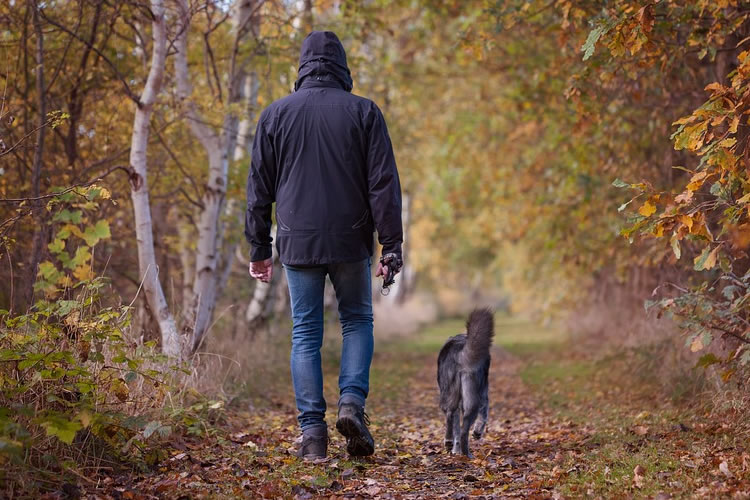
Start Your Aging Dog On A Joint Supplement
If your senior dog seems a little stiff, is walking a little slower, having trouble getting up or is reluctant to go up steps, or maybe isn’t jumping as high or often, as usual, it may be arthritis. This painful inflammation of one or more joints can occur at any age but is most common senior dogs. Make sure your dog gets enough exercise to keep his joints supple. It’s also important to keep them at a healthy weight so not to put unnecessary pressure on painful joints. Joint supplements containing ingredients like glucosamine, chondroitin, MSM (MethylSulfonylMethane) and hyaluronic acid have been proven to be helpful in keeping joints healthy and pain-free. We’ve had two senior dogs in the last 5 years and in both dogs and we noticed a huge difference once they were started on a joint supplement regimen. They were able to take longer walks, zoomed up the stairs and even became more playful. These joint supplements designed for dogs really can work wonders making your senior pooch more comfortable and spry.
Joint supplements come in many different forms like tablets, capsules, liquid and every dog’s favorite – the treat! If you’re unsure where to start we recommend these K9 FullFlex, Hip & Joint Formula, treats designed for senior dogs are chock full of the supplements we mentioned that are needed to keep joints healthy. They’re liver and beef flavor and come in a yummy little treat that would be hard for any dog to pass up. 100% organic American made ingredients, they also contain immune boosting ingredients to keep your dog healthy. You can click through here to read amazing reviews where customers report that their dogs are no longer showing signs of pain, are less stiff and even avoided surgery after using this product. You can find the K9 FullFlex, Hip & Joint Formula linked here at iHerb.com.
Certain breeds like German shepherds, Labrador retrievers, and dachshunds are prone to arthritis and it may be best to start them on a joint supplement earlier rather than later. Prevention is always the best medicine.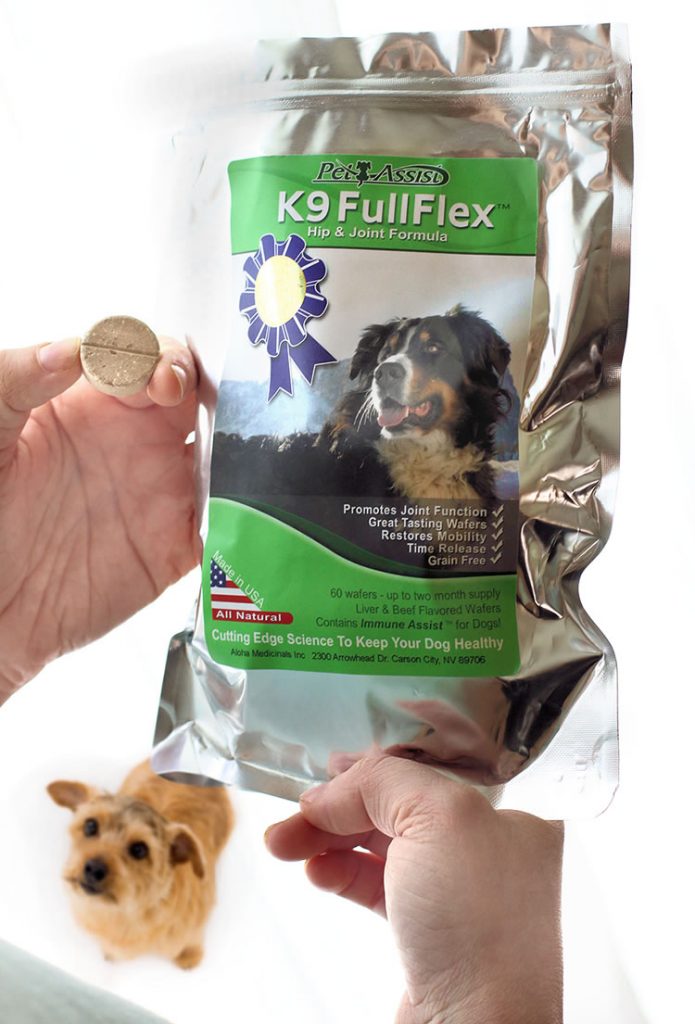
Omega-3 fatty acids can also be really effective for keeping your pet’s joints healthy. Omega-3’s are heat and light sensitive and are rendered inactive during commercial pet food production. So even though they’re listed on the food label they won’t actually provide any benefit. An Omega-3 supplement (think fish oil) formulated for dogs is just what your senior needs. Plus, Omega-3 fatty acids can also improve conditions like osteoarthritis, heart disease, and kidney disease. Other benefits for your senior include:
- Alleviating the effects of allergies
- Slowing the growth of yeast and bad bacteria
- Keeping the brain, skin, and eyes healthy
- And slowing the development and spread of certain pet cancers
Keep An Eye On Their Eyes
Have you noticed your dog’s eyes aren’t as clear and bright as they used to be? Maybe they have a grayish blue tint? Many senior dogs develop an eye condition called Nuclear Sclerosis also known as Lenticular Sclerosis. Often mistaken for cataracts, the lens of the eye appears cloudy but, the dog can still see quite well. If your dog begins to bump into things more often it may the sign of something more serious. This is the time for an eye checkup.
If your senior dog’s eyesight is on the decline here’s a few tips:
- Try to cover slippery floor surfaces with throw rugs to keep your senior dog’s confidence up. Yoga mats work really well too.
- Different natural scents like essential oils can be used to mark special spots in the house (food, water dish, bed, door to yard, etc.)
- Leave your pet’s feeding area in one spot and avoid rearranging furniture.
- Make it easy it is for your pet to navigate through the house by keeping home traffic areas clear and minimizing floor clutter.
Feed a High-Quality Diet With Probiotics
It’s important to feed your dog a well-balanced high-quality diet for his or her stage of life. This means food without chemical preservatives, artificial colors, quality meat-based protein and a low carbohydrate content. Not only can this delay or eliminate age-related illness, but can also help prevent constipation which senior dogs are prone to. So when do you start your dog on a senior-specific diet? That all depends on your breed of dog. Smaller dogs are considered seniors later in life than large breed dogs that generally have a shorter lifespan. In general, all dogs are considered seniors between the ages of 7 and 12 years old. But there isn’t a clear and exact scientific standard in the pet food industry for what is best to feed every senior dog. Some dog food brands may be higher in calories while others have more protein or more fat. If your dog is healthy there may not be a need to switch at all. If you notice weight gain due to a decrease in activity try feeding a little less and adding fiber in the way of fresh vegetables or a tablespoon or two of fresh or canned pumpkin. Instead of commercial dog biscuits for a snack try substituting apple slices, fresh green beans or carrot sticks for a low-calorie crunchy snack.
Did you know that about 80% or your dog’s immunity is in their gut? This is why probiotics are so important. Probiotics loaded with good bacteria not only battle the bad guys (bacteria, yeast, viruses, parasites), but they also produce neurotransmitters and neuropeptides needed for brain health and help with the uptake of critical vitamins and minerals. They can even synthesize important hormones like serotonin. Wow!
To keep your senior dog’s gut in tip-top shape we suggest a daily probiotic. These California Gold LactoBif Pet Probiotics are great and can be added right into your dog’s breakfast or dinner. Just open the capsule and mix into their food. If you feed mostly a kibble, mix with peanut butter or mashed banana for an afternoon treat. You can find them here at iHerb.com.
Initially, probiotics can sometimes cause a bit of constipation. This makes them a great remedy when your pet is suffering from diarrhea. It’s always best to start off slowly and acclimate your dog’s digestive system. Start with a half dose and see how he or she does and always make sure they are properly hydrated and have access to clean water.
Keep Their Teeth Clean
A clean bill of dental health can prolong not only the length but the quality of your pet’s life. “Pets with regular dental care live an average of 2 years longer when compared with pets that don’t. Just as with people, there is a link between other diseases such as heart disease in pets with poor dental health” says Dr. Jen Emerson-Mathis DVM, CVJ. To keep your senior dog’s teeth in check commit to brushing at least twice per week. Dental chews, as well as raw bones, are also useful in reducing plaque and tartar and keeping your pet’s mouth clean and healthy. If you notice your dog is chewing differently or has unusually bad breath it may be a sign of periodontal disease or an infection. Not only may this be painful for your senior, unchecked dental infections can enter the bloodstream making your dog very ill. If you notice any suspicious signs of dental disease, a professional dental cleaning or surgery may be necessary.
They May Lose Their Hearing
Hearing loss can be a gradual symptom your dog experiences as he or she ages. If common noises or words they know that used to spring them into action don’t seem to faze them anymore, hearing loss may be the culprit. I noticed my dog would stay in bed when a bag of snacks would be opened or I would call him to go on his walk. Previously he would spring into action as these things would demand his immediate attention. A trip to the vet confirmed he had indeed lost most of his hearing.
Be aware that hearing loss may affect your dog’s overall attitude. Since they can no longer hear when someone is approaching, they can easily be taken off guard and therefore frightened. What happens to you when someone sneaks up behind you? You get scared. If it’s me I may yell some things I’ll regret later. Dogs are the same. So as not to startle them, dogs with hearing loss should be approached cautiously and from the front. We don’t want our pooch on edge all the time. A calm dog is a healthy dog.
Even though dogs with hearing loss can no longer hear sounds, they can still feel vibrations. Our small senior dog began growling whenever he would feel the vibrations of someone walking past his bed while sleeping under his blanket. It wasn’t a vicious thing, but more of a “Just reminding you I’m in my bed” kind of thing. Clapping was another way we were able to get his attention.

Be Careful In Extreme Temperatures
Older dogs have a harder time acclimating to extreme temperatures. This not only means colder temperatures in the winter but also heat in the summer. Seniors are also more susceptible to heatstroke than younger dogs. Be aware of what conditions your dog is being exposed to and prepare. If they are out in hot weather, make sure there is plenty of cool water and shade available from trees or overhangs. Dog houses shouldn’t be considered as shade because they heat up inside. Walks are best taken early in the day or after sunset. Excessive panting may be a sign they are overheating. Be sure to bring them into the air conditioning or cool them down by hosing them off with some cool water.

In winter, depending on breed and size temperatures below 32 degrees can be dangerous. Senior dogs may get hypothermia and even frostbite if the conditions are extreme enough. Always bring your animals in during freezing temperatures. Look for signs that they are uncomfortable and can’t handle the weather conditions. During the winters provide your senior with a warm bed indoors and away from drafty areas in the warmer parts of your home.
Try To Keep Them Calm And Ease Their Anxiety
Is your senior pup is getting unusually spooked by unfamiliar people or pets? Maybe they’re becoming less tolerant of being touched or compulsively licking? They may even be following you around the house more, needing constant physical contact or pacing back and forth. It is possible for older dogs to have anxiety or become anxious. They can display behaviors like increased irritability and become more sensitive. And senior dogs can have a harder time dealing with stress than their younger counterparts.
After ruling out any underlying medical causes of anxiety with your vet there are a few things you can do. When leaving the house, leave on some soft music or T.V. to drown out noises that may otherwise scare your pet like car horns or lawn mowers. To calm and soothe your pooch we recommend trying Bach’s Rescue Remedy Pet. I’ve even used it myself during times of heightened stress (the people version ;-)).
Bach’s Pet Rescue Remedy is great for:
- Visits to the vet or groomer
- Stress caused by loud noises
- Excessive barking caused by stress
- After a shock, trauma, fright or mistreatment
- Any stressful or scary situation
Just 4 drops of Rescue Remedy in your pet’s water or on a treat and they should find a sense of calm and emotional well-being. You can find it linked here at iHerb.
Get That Cough Checked Out
If your senior pet develops a cough it may not just be a simple cold. A cough in dogs, especially after exertion may be the sign of a heart disease, lung disease or something called Collapsing Trachea. In small breed dogs, the trachea (windpipe) can lose its rigid ring-like structure and the airways can then become obstructed and can make it hard for your dog to breathe. Look out for unusual dry coughing that may sound like a honk especially after activity or drinking. It is really important to have your senior dog’s cough evaluated by a veterinarian so a treatment plan may be put into action. It may prolong or even save your beloved dog’s life.
Look For Changes On And Beneath The Skin
As your dog ages, it’s common for them to develop lumps called lipomas. Lipomas are basically fatty tumors that can be felt just under the skin. Our veterinarian explained to us that if the lumps are soft and move freely under the skin it is safe to assume they are benign. If the lump is hard or fixed it may indicate cancer and require surgery. Although most lumps and bumps are benign (non-cancerous) it’s always best to bring them to your vet’s attention for a proper diagnosis to ensure they aren’t a cause for concern. Your vet will ask you a few questions about the lump like if it appeared suddenly, its shape, color, or size has changed or if your dog has been acting different lately. They may even take a sample of cells from the lump with a fine needle and view them under the microscope for a definitive diagnosis.
? Do you have a senior dog health tip? Let us know in the comments how you keep your senior healthy.
? iHerb Fun Facts!
iHerb sells over 35,000 products and ships to over 160 countries
iHerb is a Google Trusted Store and their customer service team provides support in 10 different languages!
We love shopping at iHerb! iHerb’s prices are amazing and they ship quickly. Shopping with iHerb is such a breeze!
? Want a $5 off iHerb Coupon Code?
All new iHerb Customers will get $5 off their first order! Just click here to apply the code!
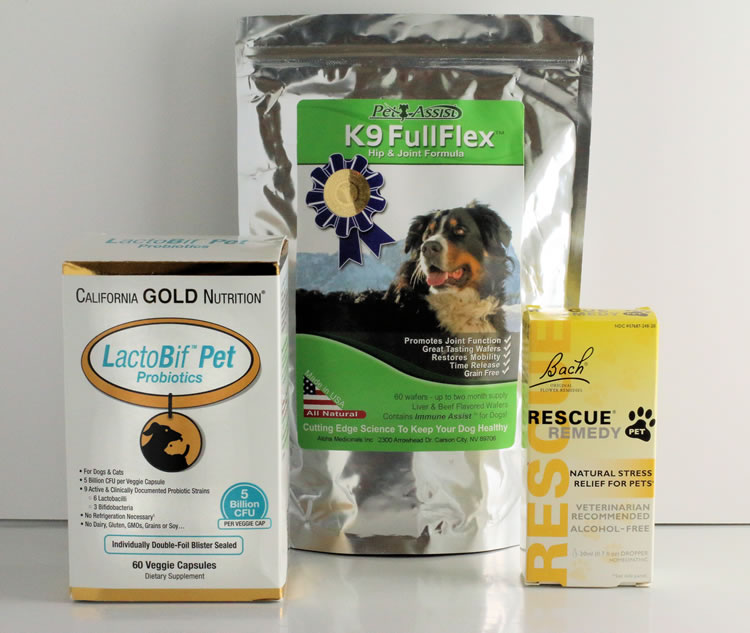
Better Living uses affiliate links. If you make a purchase through them, we may receive a small commission (for which we are deeply grateful) at no cost to you.

